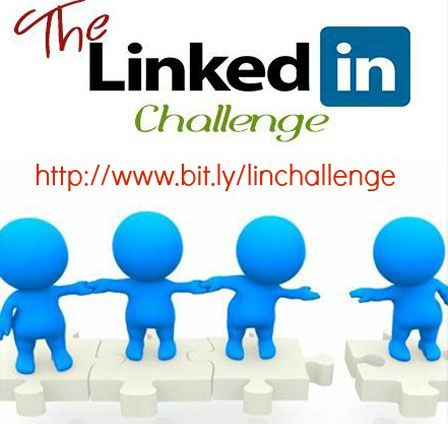Below you will find a selection of the most recent entries from bloggers in our Work/Business section.
To view the entries from individual bloggers, click on the links below:
- Claire Doole - Claire Doole Communications
Claire is a former BBC correspondent and international spokeswoman who is passionate about helping people communicate with confidence. Since 2006, she has successfully trained hundreds of professionals in the art of presenting and public speaking, talking to the media, managing communications in a crisis, and writing for the web. In addition, she has coached C-level executives and public figures to give powerful TEDx and TED style talks in Europe and the Middle East. A Swiss and UK national, Claire trains and coaches in French and English.
- Elizabeth Ballin - Life Coach
As a long time member of the international community in Geneva, Elizabeth Ballin has been coaching adults and students from all parts of the world. She has coached business professionals, musicians/artists, couples, families and adolescents. She is a fully accredited Life Coach by the International Coaching Federation. Elizabeth Ballin, Life Coach
- Patrick Hoza - US Tax & Financial Services
Since 1990, Patrick has many years of experience with US individual expatriate taxation under his belt, including High Net Worth Individuals, streamline/voluntary disclosure filings and tax consulting, as well as working with large multinationals like Novartis, BP, Hewlett Packard and General Electric. He has extensive knowledge in serving both US expatriates and resident and non-resident aliens with their US tax-related issues. Patrick Hoza is a Tax Director at US Tax & Financial Services, with extensive experience in all aspects of Individual US tax and Expatriation, including Hight Net Worth Individuals and large multinationals.
Patrick started his career in 1990 in California, with Westpro Ltd., as a Senior Tax Consultant, then spent the middle part of his career working at KPMG and Ernst & Young. During his time with Ernst & Young, he worked and lived in Russia, France and finally Switzerland. He has gained a valuable working knowledge of the respective income tax regulations in all of these countries.
Patrick holds a B.A. in International Relations from the University of Colorado, is a member of the National Association of Enrolled Agents and is a Certified Acceptance Agent.
-
Melitta Campbell - Business Coach
Business Coach and Mentor with nearly 3 decades of business experience and a passion for helping women confidently build a business they love. She is also the founder of the Swiss Entrepreneurs Club and president of the Swiss Riviera Toastmasters Club in Montreux. Originally from Wales, she now lives in Montreux in a chalet she has renovated with her husband overlooking the Swiss Alps. - Sunita Sehmi - Walk The Talk
Founder of Walk The Talk, Sunita has been training, developing and now coaching Business Communication skills in both companies and educational establishments for over twenty years. She has a passion for helping people to maximise their potential and created Walk The Talk with the sole aim to drive each and every client to perform their best.
- Robert Harris- Forth Capital
With over 25 years experience working for some of the major financial institutions in the City of London, Robert is a founding partner of Forth Capital, the leading expat financial advisory company in Switzerland. Regulary quoted in newspaper articles and magazines, he is well placed to advise expats on a variety of financial issues that may arise during their time living in Switzerland.
- Debbie Croft - Croft Coaching
As the founder of Croft Coaching, Debbie has a passion for helping people overcome challenges, embrace change and live life to the full; with an ethos of “work hard, play hard”.
- Sarah Santacroce - Simplicity
A certified social media, internet marketing, and virtual event specialist, Sarah enjoys every aspect of small business marketing. Through her own business, Simplicity, it is her mission to help other small businesses and solopreneurs increase their visibility and use social media tools as part of their marketing strategy.
- Diana Ritchie - SSC Sàrl
A Director at Swiss Career Connections, Diana will provide you with some useful tips for job hunting.

Image courtesy of Master isolated images / freedigitalphotos.net
By Diana Ritchie, Spouse Career Center and Swiss Career Connections
It reminds me of the saying, what do you want to do when you grow up? We all know that when we grow up we will work, but do we all know that we get to choose what we do when we grow up? As a student I didn’t. I studied Economics at university because my father was a successful business man and wanted his children to study commerce.Well I did not get into the faculty of commerce at McGill University and since I liked and did well in Economics in my final year of High School in Toronto, I took the next best thing, a BA in Economics. My real first job out of University was selling Life Insurance and I was very good at it and I enjoyed it because I was good at sales. Was this my dream job? No, but it had aspects of what I enjoy, a flexible job, meeting new people, helping people and being creative.
Statistics show different figures but in summary about 80% of people in the Western world do not like their jobs. Jobs as we know them today are a legacy from the industrial revolution and the terms they used have stayed with us to the present; terms such as compensation (meaning payment for your time at work), labour (referring to staff) and Human resources (similar to natural resources). Work historically was not meant to be enjoyable and even today we work so we have money to do what we enjoy. What if our job was what we enjoyed? I sometimes hear people say, “Why should I be paid for doing something I enjoy?” I would like to believe that we are coming around to the idea that work does not need to be hard and unpleasant, that getting paid to do something we like and enjoy is the norm and that employers (and many are starting to realize this) are responsible to their employees to ensure that they are happy and enjoying their job. Evidence of this is the ratings on the best employer published by Forbes, CNN, Guardian, etc.

By Sarah Santacroce at Simplicity
Not getting those leads from LinkedIn yet? Then I’m challenging you to participate and spend 10 minutes on LinkedIn every day. Implement the tips that you will receive via e-mail, share updates, update your profile, grow your network and build relationships. This is already the second round of this challenge. In June of this year we had 700 participants!
How Does it Work?
By signing up & committing to the LinkedIn challenge you will receive very specific tips via e-mail every other day which you can implement right away. I’ve invited several other LinkedIn experts to participate, including:

Image courtesy of Carlos Porto, www.freedigitalphotos.net
By Debbie Croft, Croft Coaching / Geneva Coach Alliance
Stress is so personal, one person’s stress is another’s idea of a thrill, so learning to overcome and manage stress is equally very personal.
Take relocation. Some people love it, whilst others are exhausted by it, physically and emotionally. Moving house is stressful in itself but when that move is to a foreign country, the impact is multiplied. Many people adapt quickly, yet for many others it can be an isolating and frustrating experience, where people say to me “sometimes I feel like I am the child, back at school.”
For many who have adapted and settled, they are now waiting to hear if they are facing early repatriation as organisations make job cuts. In the last couple of months, I have helped more and more accompanying spouses who are now looking to return to work, to help keep the family here and share the responsibility. For the working partner, there is the stress of losing a job or moving roles again. Equally, for the partner who has been out of work, there is the anxiety and dip in confidence around what job role to even look for, as it seems such a gap between being at home and working professionally.

Photo by phanlop88, www.freedigitalphotos.net
By Sarah Santacroce at Simplicity
Should I pay for a LinkedIn Premium account? This is a question I get asked on each & every LinkedIn webinar. It’s of course a very valid question, since the monthly investment is not exactly peanuts.
Let’s see what you get more when you pay:
Full list of ‘People Who Viewed Your Profile
As a free member you can only see the last five people to have viewed their profile. Premium members on the other hand get the full list of people from the last 90 days.
I often reach out to people who view my profile to see if they are interested in connecting. Often times they were just too shy to ask. If you’re on LinkedIn every day like me, then you don’t necessarily need to see the full list since you’ll always see the last 5 people who visited your profile.

By Sunita Sehmi and Rodica Rosu Fridez
English as an international business language has become instrumental in social and economic empowerment, and consequently the demand for English has escalated resulting in more jobs necessitating a good level of English proficiency.
According to the study “The Linguistic Landscape of Switzerland” conducted by the FSO (Federal Statistical Office 2009), the English-speaking expatriate population is growing significantly. It is accepted that the range of languages spoken in both private and professional environments in Switzerland has grown; thus propelling the usage of English as THE reference language.
The EPI (English Proficiency Index) stipulates that many Swiss companies are now operating internationally and “as the power of English in the workplace is rising” most companies want employees to be skilled in English. The EPI rank Switzerland as having a moderate proficiency score, (54.06), adding that the presence of other national languages does not result in a weakening of English proficiency. (EPI Report, 2011) Many of the multinationals in the French-speaking part of Switzerland have adopted English as their corporate language and within the next couple of years it is expected that about one in every two top managers in Swiss companies will hail from overseas (Allen, 2012).








